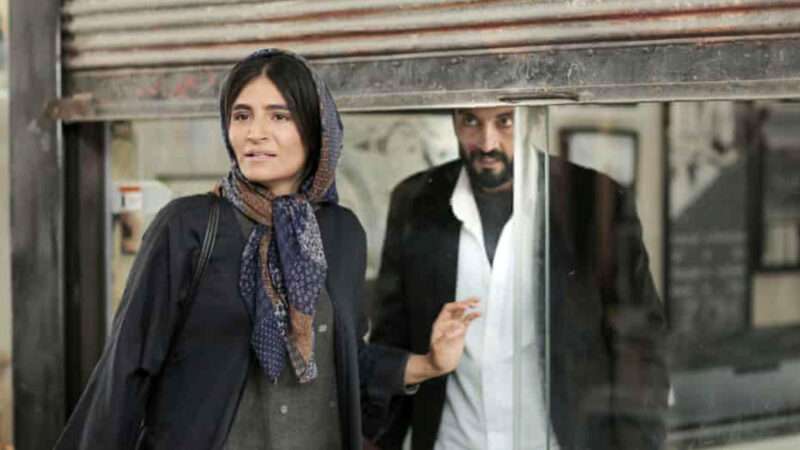
Is the hero of A Hero actually a hero? For that matter, is anyone, ever? As it turns out, the answers are rather complicated—narratively, but also morally. And therein lies director Asghar Farhadi's new movie, a knotty social fable about justice and decency in present-day Iran.
When we first meet Rahim (Amir Jadidi), he's on a brief leave from prison. He's been locked away for three years because of a debt he owes to his ex-wife's brother, Bahram (Mohsen Tanabandeh); in the Iranian legal system, an unpaid creditor can have his debtor jailed until the debt is either paid off, or the creditor decides to forgive what is owed. At first, Rahim is on track to pay off a large chunk of what he owes, since Farkhondeh (Sahar Goldust), the woman he plans to marry, has found a purse with a sack of gold coins.
But after inquiring about selling the coins—it turns out their value has gone down—he takes the advice of a clerk to post a sign advertising the lost bag. A woman claims it, saying it's money she hid from her lout husband, hoping it might provide a measure of personal freedom. Hearing about his seemingly good deed, the administrators at Rahim's prison facility, trying to distract the public from a recent suicide, decide to alert the local media. But Rahim, it turns out, cannot tell the whole truth, since he must conceal his relationship with Farkhondeh for various reasons. So he begins to lie even as he is being held up to the public as a virtuous hero, which in turn seems to feed Bahram's belief that Rahim is misleading people, perhaps enacting an elaborate plot to save himself at his creditor's expense.
In Farhadi's cunningly plotted story, each individual action leads to a reaction, sometimes from an individual, sometimes from a family, sometimes from an organized group—the media, the prison authorities, a background investigator who holds the keys to Rahim's employment, a charity that helps pay off prisoners' debts looking to use his case to gain attention—until Rahim's predicament consumes the entire community.
Thus, an apparently simple tale of a man trying to escape debtor's prison becomes a labyrinthine journey through Iranian middle-class life. It's a story about the interwovenness of human affairs, the ways in which individual decisions are not truly isolated, but instead always exist in the context of other people's desires and imperatives, and the sometimes arbitrary, sometimes cruel systems in which they are trapped. Everywhere Rahim goes, there are rumors, legal mandates, cultural codes that cannot be broken, personal histories that must be accounted for. A Hero is, on the surface, a tale of one man, but really it's the story of a complete society trying to work itself out.
It also acts, I suspect, as a subtle critique of that society—not of the people within it, but of the legal and cultural systems that maintain an invisible control over their lives. This is not a movie of Big Speeches or Lessons Learned; on the contrary, part of what makes the film so powerful is that everyone simply accepts the social reality around them as a given, then tries to work things out for themselves, their friends, and their family as best they can. But the story pivots on multiple instances of women whose roles, for various reasons, must be kept in the background, and a legal system that allows complex familial disputes to result in prison time, so long as there are financial debts involved. (Indeed, the movie suggests that in a complex society, most debts are not financial, but social and familial, and impossible to reduce to a simple figure.) If nothing else, it sometimes plays, perhaps unintentionally, like an extended advertisement for the U.S. bankruptcy system, which allows for the orderly discharge of most interpersonal financial debts without the prospect of prison time.
What's remarkable about the movie is how finely balanced its motivations are; almost everyone in the movie manages to be both selfish and self-sacrificing, sensible and stubborn, decent and callous in some way. A Hero is a movie of fractal moral complexity; no matter how closely you look at it, it does not resolve into a simple lesson, except that all people have seemingly infinite capacity for both generosity and self-interest, and separating the two is often much harder than it seems.
The post <i>A Hero</i> Is a Movie in Which Everyone Both Is and Isn't a Hero appeared first on Reason.com.







